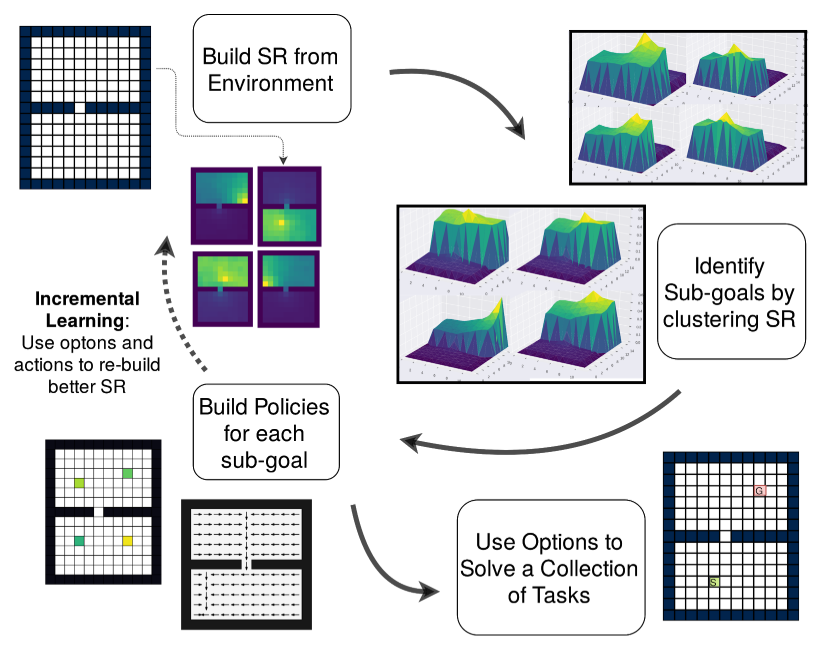Editor: Sankalpa Venkatraghavan
Part 1: We view the scene through the lens of Dr Preeti Aghalayam, a professor and alumnus of IIT Madras.
I sat down in front of her quite nervous, worried to the core that I might say something, or unintentionally imply something disrespectful. I took my notebook out to take notes, as is the norm during her lectures in the classroom.
The conversation flowed and soon enough I found that her experiences of what it’s like to be a woman in the field of engineering and sciences deeply resonated with me.
Dr Preeti answered our questions very transparently and gave us her perspective on whether gender plays a pivotal role in shaping who we turn out to be as a person: emotionally, cognitively, and professionally.
T5E: Were there any activities in IITM that you hesitated to be a part of mainly due to gender ratio and the lack of female participation?
Well, I did take part in a lot of activities – both literary and on the sports side. I was a part of this group of friends who strongly believed in the idea of being feminists and didn’t want to hold back.
So, personally, I used to just bravely waltz up and say, “I’m going for it.”
Of course, on the sports side, the male and female contingents were separate, and they didn’t have a lot of events for the women in Inter IIT; four to five events is all. Since my first year, I’ve been in the inter IIT team for both basketball and athletics. The women’s contingent used to be really small. If you think it’s small now, you couldn’t possibly imagine the size of it then! It used to be scrimp-and-save for the female contingent and at a maximum, maybe seven to eight women used to go to the Inter IIT’s to represent Madras out of a total contingent size of maybe, a hundred. This wasn’t entirely because of the lack of female participation but due to the number of resources dedicated to conducting women’s sports at the inter IIT.
If we are to talk about something I drew back from, it was possibly dramatics. I was very interested in it but I recall that the practice sessions used to be conducted pretty late, it used to start post 9 PM. Even though it was held at CLT and I lived in Sarayu, the only girls’ hostel back then, it wasn’t entirely the question of safety. It used to be a roomful of guys and I thought it was a bit too much too brave after having long sessions of sports practice and so on. This was probably the only thing I took a step back from and said, “Maybe not now.”
I do understand though, the idea of putting yourself out there is not easy, and I felt it too. You could be ridiculed and you most likely are too; but to some extent that fear exists for guys too, not just for women. I’d keep that in mind!
T5E: Did gender ever feel like a limitation to academic excellence? Have you ever felt like your calibre was questioned blatantly or even implied vaguely?
(laughs)
It’s actually a pretty serious point to discuss and debate on but I feel like making jokes anyway! I’m from Mysore and like my daughter says – it is a pastoral land far away from any action. So, I’ve always constantly felt like my English wasn’t good enough, my math wasn’t up to par, my writing skills were questionable. Somehow, I’ve always been able to conquer this imposter syndrome and get on with life. You just have to keep your head above water and stay in the clear.
I remember being super excited about everything – starting my undergrad at IITM and grad school abroad, and coming back to teach at the IITs. Obviously there have been instances that dampen your enthusiasm and take a toll on your spirit. But I think, having a positive outlook (I always do ) and just braving the ordeal is the best way to deal with it.
If there is something worth fighting for, you should go for it, that’s what I have believed.
T5E: Was the gender disparity in the universities abroad similar to that of IIT’s? What role did this play in influencing female participation?
Grad school, for me, was entirely different compared to undergrad. It was a new experience, culturally and academically. I really just had to put my head down and slog. It was the first time I was independent in financial terms too. But given the fact that I was in a university town in the US and in a gated community here at IITM, I felt physically safe in both places, and I utilised this to the fullest. I did not feel either place was better or worse, gender disparity-wise.
In grad school, they had compulsory female inclusivity clauses for sports, which was good for me! The soccer team there and the other field games mandated that they have a woman on the field and I guess that counts for a lot.
On the note of female participation academically, I don’t think that it is due to lack of interest in STEM. It’s a serious issue and we should be teaching our young girls to deal with it correctly. It is certainly NOT cute to say that girls can’t do math and sciences.
Somehow, the system in India seems to self-select out women from aspiring for IIT’s even before they begin their coaching or active preparation for the same. Any parent of a girl child would certainly give a thought or two before enrolling their daughter into, for example, extra math or science classes which are held late in the evening and get over by around 8:30 or 9:00 PM, unless they have reliable, safe means of transport to and fro from class and this may or may not be entirely feasible. The guys would collectively take an ola or uber but as a parent, even I’d be worried about my daughter travelling alone at that age. That said, at fourteen or fifteen, you’re not entirely sure of your interests and lack thereof (for both men and women!); so I feel like all options should be open to you, so you can experiment around and find out what you like.
Simply saying that you’re very inclusive to gender diversity isn’t actually making a difference; what are you doing to make the system more inclusive is the question, and I do think this is an issue that we need to take head-on and address.
T5E: Could you give us your take on being a female professor in an engineering institute/ being a woman in a professional/ service sector?
One thing that certainly gets me even today, is the fact that despite having been a professor for nearly twenty years, invariably the first question that pops up in conversations is “You don’t look like a professor”, I mean, is the idea of a professor stereotyped as something in their heads? Despite getting sugar-coated reasons for me not matching up to their image of an ideal professor, at the core is the fact that I’m a woman. Furthermore, the expectations line up – being a woman in this profession, you have to dress a certain way, speak a certain way, have particular opinions and such. I don’t feel any obligation to conform to these norms!
Another thing people often misconstrued is that teaching is the best profession for a woman: your time is flexible, and you have a lot more opportunities to invest into what society expects out of you – say marriage and kids. This is very disheartening because that is not the reason I am here! I am here because I love this job! At any rate, the expectations are sky high and the need to be perfect is constant regardless of the profession.
You become a wife, a mother and your priorities do get distorted, it is true for men when they become fathers too?. It’s irritating how some people hold the opinion that once a woman becomes a mother, her efficiency in her professional life reduces. I’m not saying this is an excuse that women should get away with for their inefficacies. I understand that it’s not easy to straddle these two worlds in any profession. It takes a lot of individual effort and mental strength. At some moments, shit does hit the fan. You tide it over, and you make some tough choices and it does help to have people around who are supportive and sensitive to your situation.
Again, making these tough calls is a privilege that not a lot of women have and I’m aware and grateful. Many don’t have the opportunity to define success the way they wish to. They are bound by choices that sometimes weren’t made by them. My women classmates, my batch of 20 from 1995, are good exemplars – each of us has made different choices but all are successful, and absolutely wonderful human beings!
T5E: Does the questioning of one’s abilities in one’s formative years owing to gender inadvertently play a pivotal role in shaping one’s thoughts, ideas, goals and ambitions?
To some extent, this isn’t entirely a woman-centric problem. It’s just human nature to sort of downplay your merits and talents and to question your strengths. Of course, unnecessary comments by family and social media just adds more to the turmoil.
It’s true and rather saddening that some moments invariably curb one’s enthusiasm as I mentioned earlier. I mean, at this point most women (and men) wonder if they should simply settle for something that’s easier and more comfortable to deal with. However, I believe that since we have been exposed to such things at a really young age, it’s what adds to our strength. After a point in time, we’ve just crossed so many hurdles, made tough calls, tried hard to move past societal stigmas that each decision you make later on is just motivated by the fact that you’ve come this far. There is no question of giving up or going back. Else, it’s all for nothing. That just won’t do!
Life is never going to hand you things easily on a silver platter, but we have come a long way and things are certainly on the path towards improvement. Be brave enough to fight for what you believe in and deserve, this is my message to young IITians!
About Prof Preeti:

Dr Preeti Aghalayam is an IITM’95 graduate from the Chemical Engineering department who went on to pursue higher studies in the University of Rochester, University of Massachusetts, and Massachusetts Institute of Technology. She has taught both at IIT Bombay and at her alma mater, IIT Madras.





